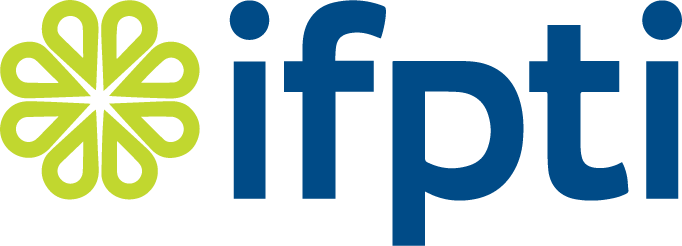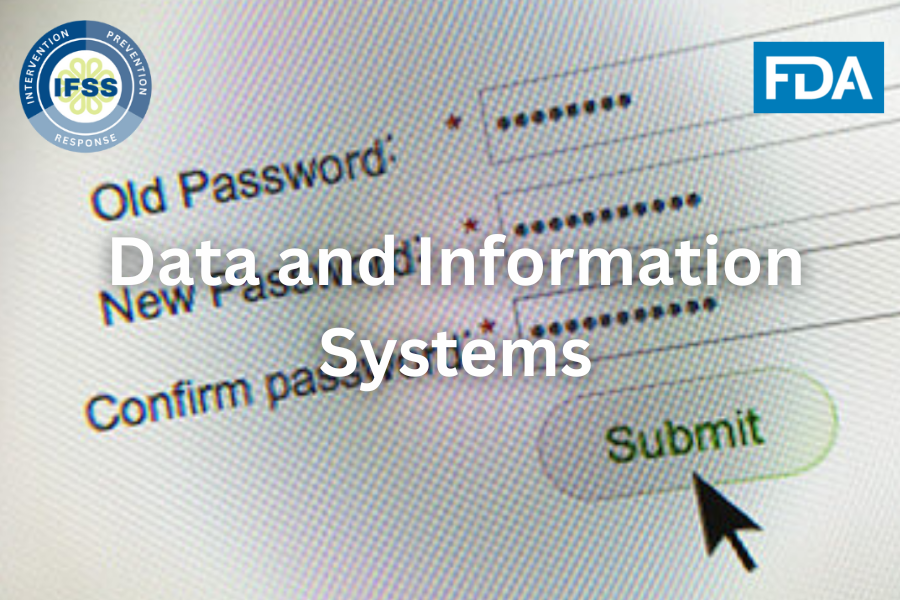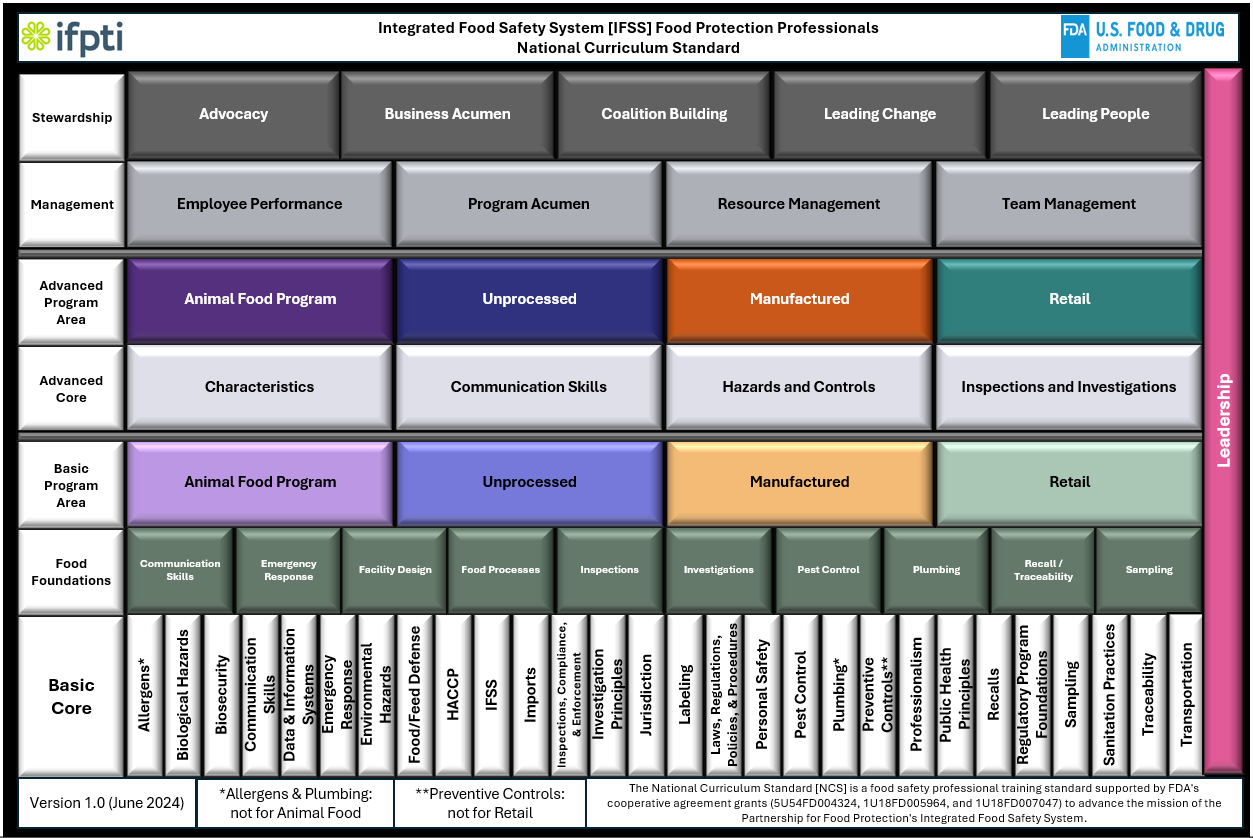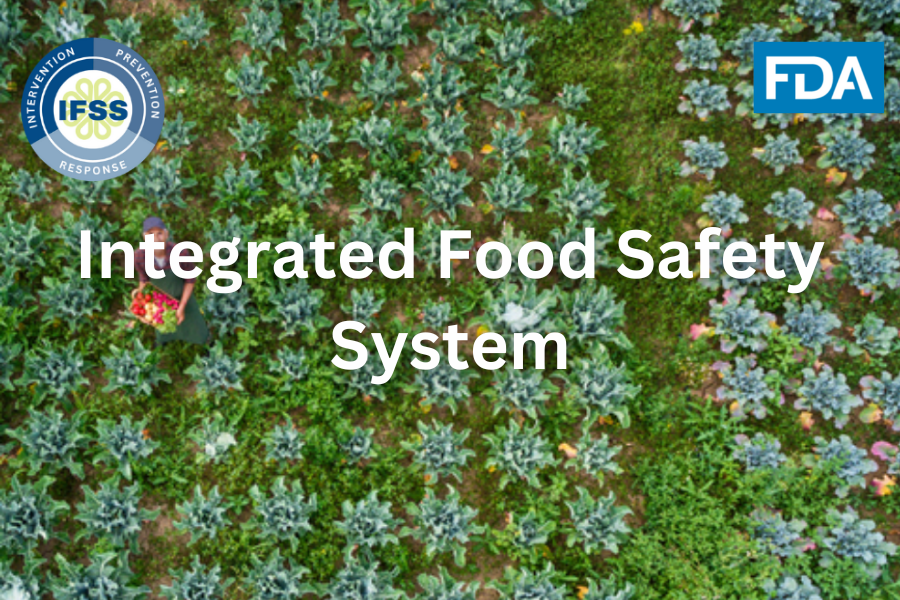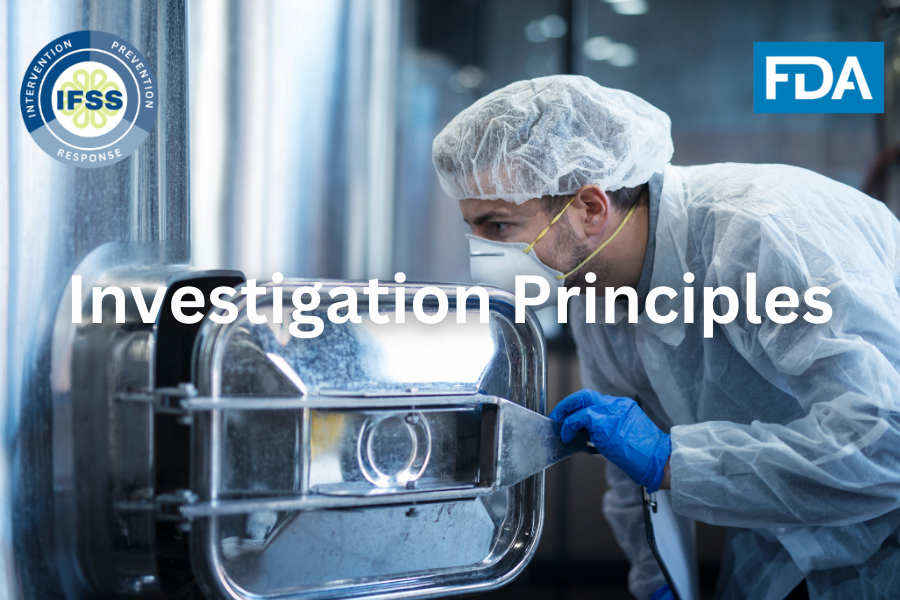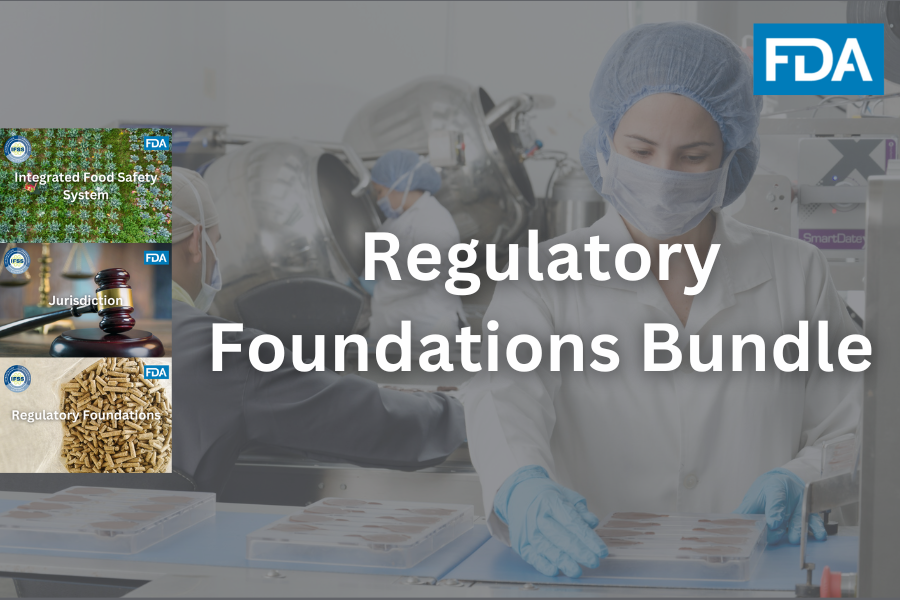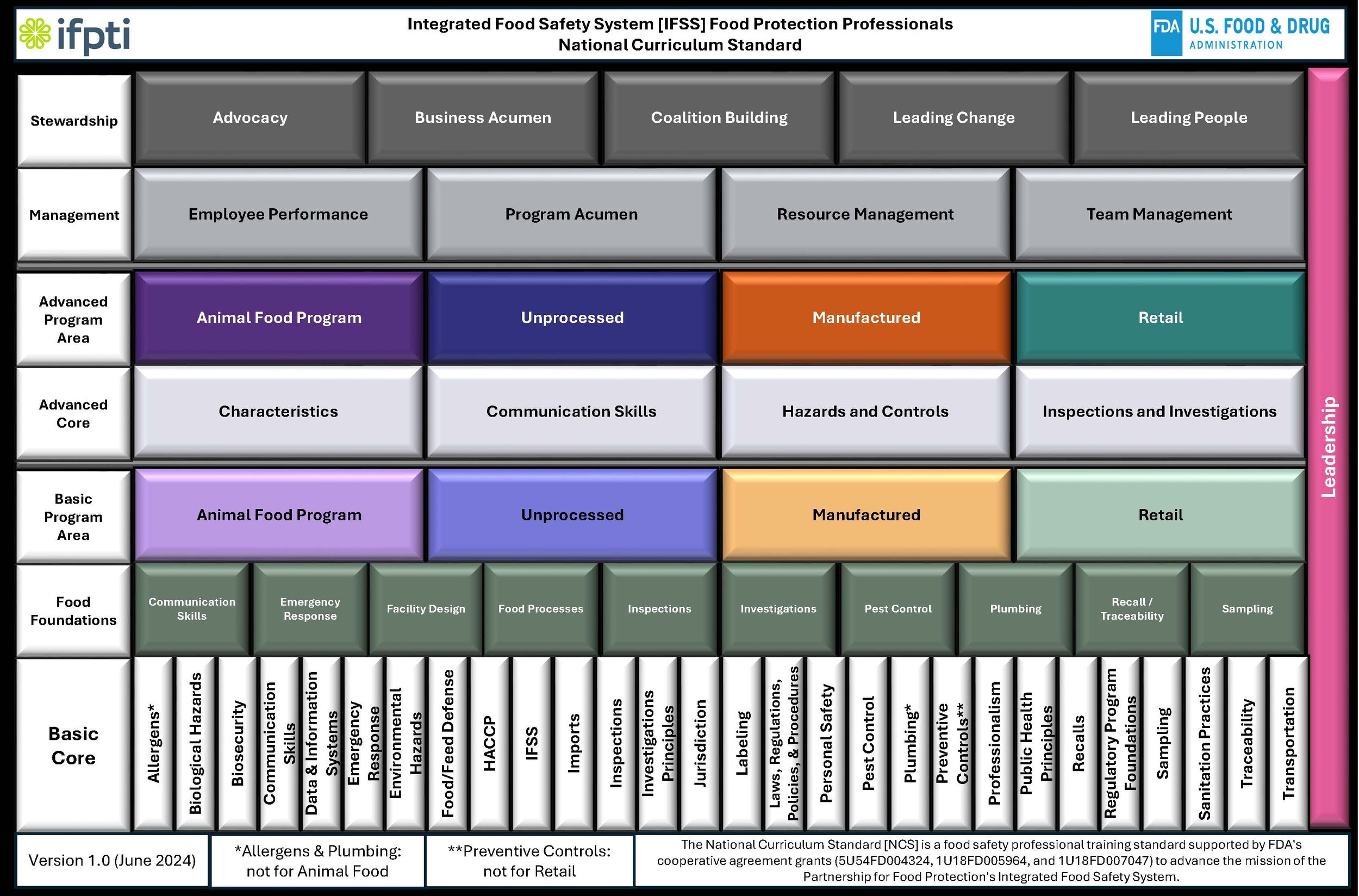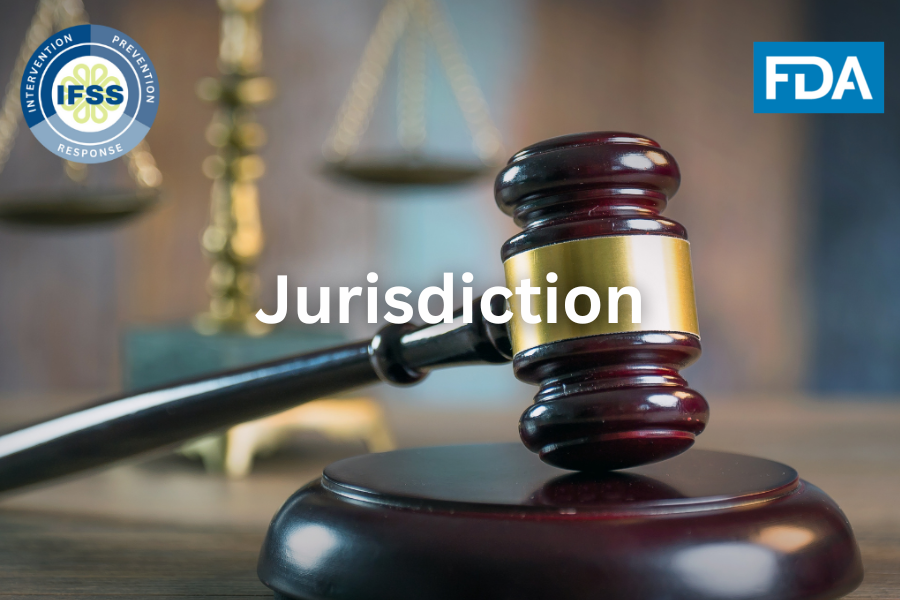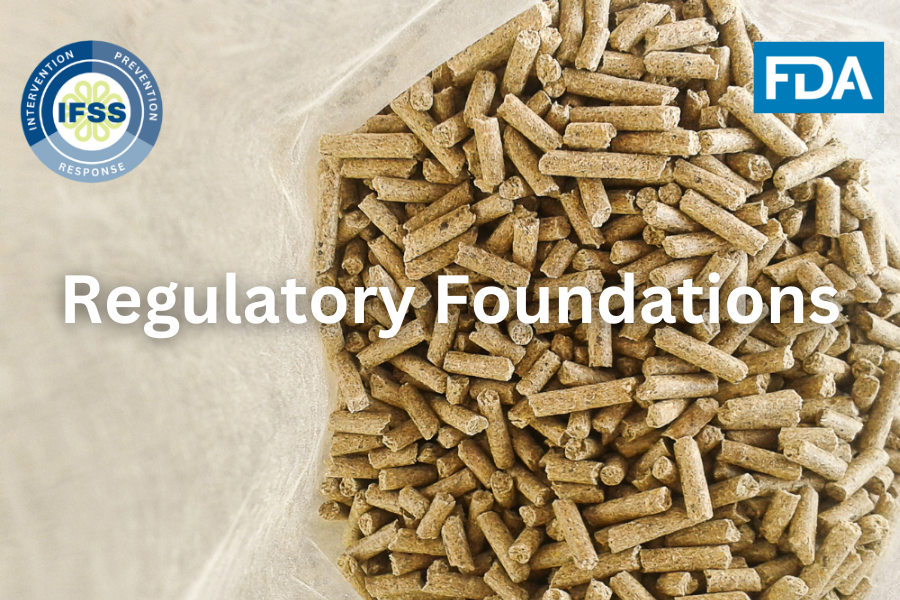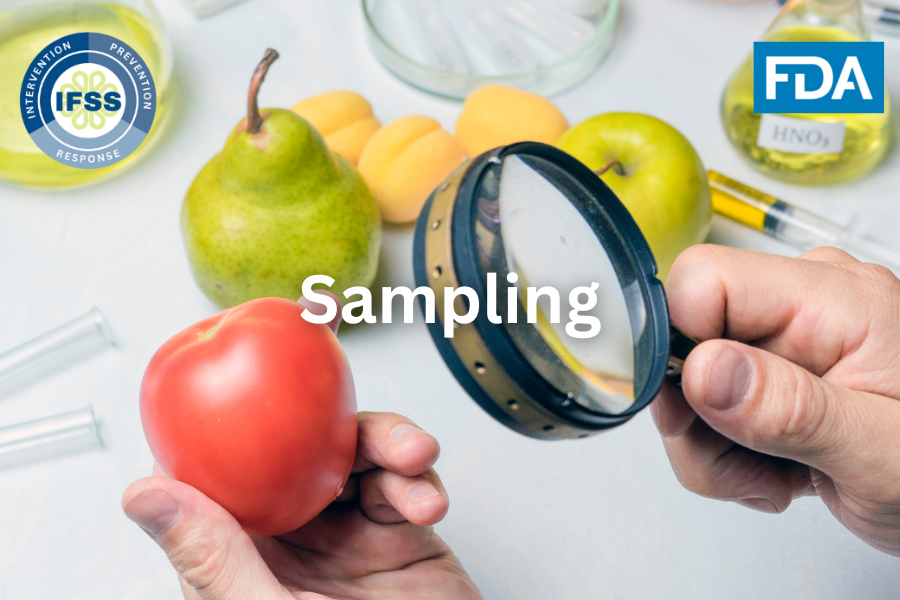Data and Information Systems
The IFSS Basic Level Data Information Systems course provides introductory knowledge, skills, and abilities related to systems used by regulatory agencies to store, process, and manage data and information.
Participants will be able to identify examples of internal and external data and information systems.
Scope: Topics in this course include Foundations, Collaborative Information Management Systems, Data Management, Access and Control, and Regulatory Applications and Software.
Course Objectives
Foundations
Identify how regulators use computers.
Define relevant terminology.
Identify systems that manage data and information.
Recognize the use of data analysis in the integrated food safety system (IFSS).
Collaborative Information Management Systems
Recognize how data and system compatibility supports collaboration.
Differentiate between inter-agency, intra-agency, and external information management systems.
Identify how the government utilizes information management systems to communicate with stakeholders.
Data Management
Recognize the importance of reliable data.
Recognize the importance of backing up data.
Recognize methods of backing up data.
Access and Control
Recognize the importance of data and information systems security.
Identify examples of data and information security measures.
Recognize the importance of securing sensitive data.
Identify examples of sensitive data and information.
Recognize the relationship between the Freedom of Information Act (FOIA) and data and information.
Regulatory Applications and Software
Recognize the advantages of a computerized inspection system.
Identify uses of agency software for regulatory activities.
Recognize the use of agency Learning Management System (LMS) for training.
Duration
Unit 1: Foundations – 25 minutes
Unit 2: Collaborative Information Management Systems Goal – 15 minutes
Unit 3: Data Management Goal – 15 minutes
Unit 4: Access and Control – 25 minutes
Unit 5: Regulatory Applications and Software – 15 minutes
Total: 2 hours
The IFSS Basic Level Data Information Systems course provides introductory knowledge, skills, and abilities related to systems used by regulatory agencies to store, process, and manage data and information.
Participants will be able to identify examples of internal and external data and information systems.
Scope: Topics in this course include Foundations, Collaborative Information Management Systems, Data Management, Access and Control, and Regulatory Applications and Software.
Course Objectives
Foundations
Identify how regulators use computers.
Define relevant terminology.
Identify systems that manage data and information.
Recognize the use of data analysis in the integrated food safety system (IFSS).
Collaborative Information Management Systems
Recognize how data and system compatibility supports collaboration.
Differentiate between inter-agency, intra-agency, and external information management systems.
Identify how the government utilizes information management systems to communicate with stakeholders.
Data Management
Recognize the importance of reliable data.
Recognize the importance of backing up data.
Recognize methods of backing up data.
Access and Control
Recognize the importance of data and information systems security.
Identify examples of data and information security measures.
Recognize the importance of securing sensitive data.
Identify examples of sensitive data and information.
Recognize the relationship between the Freedom of Information Act (FOIA) and data and information.
Regulatory Applications and Software
Recognize the advantages of a computerized inspection system.
Identify uses of agency software for regulatory activities.
Recognize the use of agency Learning Management System (LMS) for training.
Duration
Unit 1: Foundations – 25 minutes
Unit 2: Collaborative Information Management Systems Goal – 15 minutes
Unit 3: Data Management Goal – 15 minutes
Unit 4: Access and Control – 25 minutes
Unit 5: Regulatory Applications and Software – 15 minutes
Total: 2 hours
The IFSS Basic Level Data Information Systems course provides introductory knowledge, skills, and abilities related to systems used by regulatory agencies to store, process, and manage data and information.
Participants will be able to identify examples of internal and external data and information systems.
Scope: Topics in this course include Foundations, Collaborative Information Management Systems, Data Management, Access and Control, and Regulatory Applications and Software.
Course Objectives
Foundations
Identify how regulators use computers.
Define relevant terminology.
Identify systems that manage data and information.
Recognize the use of data analysis in the integrated food safety system (IFSS).
Collaborative Information Management Systems
Recognize how data and system compatibility supports collaboration.
Differentiate between inter-agency, intra-agency, and external information management systems.
Identify how the government utilizes information management systems to communicate with stakeholders.
Data Management
Recognize the importance of reliable data.
Recognize the importance of backing up data.
Recognize methods of backing up data.
Access and Control
Recognize the importance of data and information systems security.
Identify examples of data and information security measures.
Recognize the importance of securing sensitive data.
Identify examples of sensitive data and information.
Recognize the relationship between the Freedom of Information Act (FOIA) and data and information.
Regulatory Applications and Software
Recognize the advantages of a computerized inspection system.
Identify uses of agency software for regulatory activities.
Recognize the use of agency Learning Management System (LMS) for training.
Duration
Unit 1: Foundations – 25 minutes
Unit 2: Collaborative Information Management Systems Goal – 15 minutes
Unit 3: Data Management Goal – 15 minutes
Unit 4: Access and Control – 25 minutes
Unit 5: Regulatory Applications and Software – 15 minutes
Total: 2 hours
